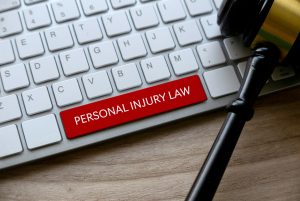In today’s digital age, social media has become an integral part of our lives.
From sharing life’s milestones to voicing opinions on daily events, platforms like Facebook, Instagram, and Twitter are where we express ourselves.

However, when it comes to legal matters, especially personal injury cases, your social media activity can significantly impact the outcome.
Whether you’ve been involved in an accident or are considering legal action, it’s crucial to understand how your online presence might influence your case.
If you find yourself needing expert guidance, a Katy Personal Injury Lawyer can help you navigate these complexities.
The Double-Edged Sword of Social Media
Social media is a double-edged sword in personal injury cases.
On one hand, it can serve as a powerful tool to document and share your journey post-injury.
Photos, status updates, and check-ins can paint a picture of your daily struggles and the impact of your injury.
On the other hand, these same posts can be used against you in court, often out of context, to discredit your claims or downplay the severity of your injuries.
Imagine this: You’re claiming compensation for a severe back injury that limits your mobility, but a few days after the accident, you post a photo of yourself smiling at a family barbecue.
Even if the photo was taken before the accident, or if you were simply trying to maintain a positive outlook, the defense could argue that you’re not as injured as you claim.
This is just one example of how seemingly innocent posts can jeopardize your case.
The Legal Perspective: What You Need to Know
When you file a personal injury claim, your life essentially becomes an open book.
Defense attorneys and insurance companies often scour social media profiles looking for any evidence that contradicts your claims.
In some cases, they may even request access to your private messages and deleted posts during the discovery phase.
While this might feel invasive, courts have ruled that social media content is fair game in legal proceedings.
It’s important to remember that anything you post online may be used as evidence.
Even if your privacy settings are high, there’s no guarantee that your content won’t be discovered.
This is why many personal injury lawyers advise their clients to be extremely cautious with their social media activity—or to avoid posting altogether—while their case is ongoing.
Best Practices for Social Media Use During Your Case
To protect your personal injury claim, consider these best practices for social media use:
- Think Before You Post: Ask yourself if the content you’re sharing could be misinterpreted. If there’s any doubt, it’s better not to post at all.
- Adjust Your Privacy Settings: While this isn’t foolproof, setting your accounts to private can add an extra layer of protection. Be aware, though, that this won’t necessarily prevent your posts from being used in court.
- Avoid Discussing Your Case Online: Refrain from posting any details about your accident, injuries, or legal proceedings. Even vague posts like “Feeling better today” can be used against you.
- Ask Friends and Family to Be Discreet: Even if you’re cautious, others might not be. Ask those close to you to avoid tagging you in posts or sharing information about your condition.
- Consult Your Lawyer: Before posting anything online, it’s a good idea to check with your attorney. They can offer guidance on what’s safe to share and what should be kept private.
Wise Advice: Tread Carefully in the Digital World
Social media can be a great way to stay connected, but it’s important to remember that it can also be a minefield during a personal injury case.
The best approach is to be cautious, think critically about what you post, and consult with your attorney if you’re unsure.
By being mindful of your online presence, you can help ensure that your social media activity supports, rather than undermines, your claim.
Navigating the legal landscape can be challenging, but with the right guidance and a careful approach to social media, you can protect your interests and work towards a favorable outcome in your personal injury case.


Leave a Reply